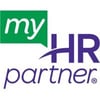Forbes recently shed light on the disconnect between perceptions of HR and HR in practice. Put simply, the administration and risk management duties HR is known for (and often joked about) are only a fraction of what effective human resources professionals handle in 2021. Some HR professionals are surprised that it took a pandemic and related people-related complications (including the ongoing Great Resignation) for the business world to recognize HR’s business impact, scope, and rightful place in larger strategy and decision-making. Effective HR by nature flies a bit beneath the radar, making it susceptible to skewed perceptions. After all, above-average morale, engagement, compliance, employee retention, and employee performance aren’t achieved in town halls or in improvement plans. They’re accomplished via HR strategy woven into the workplace day-to-day.
The Ground HR Covers
The need for robust HR that touches on all aspects of business has never been greater. In this talent-starved, competitive, and morphing marketplace where every workplace norm is up for grabs, understanding the entirety of what strong HR department does is the first step toward assessing yours – then expanding and leveraging it accordingly.
Future-proof businesses task HR with all of the following. Spoiler, this list is longer than you might expect:
- Hiring management – job postings, recruiting, interviews, hiring, firing, exit interviews. You knew this – but maybe didn’t know best practices are rapidly evolving.
- Benefits/payroll administration – another well-known responsibility of HR, and arguably its most clear-cut.
- Compliance management – adherence to employment and labor laws is critical to keeping fees, penalties, and costly legal issues at bay.
- Management Counsel and Employee Relations – From conversations and legality surrounding work-life balance and remote work to ensuring employees understand your mission, vision, and values, the gravity of this HR function can’t be overstated. Some businesses are shirking traditional titles to better communicate this, turning their “HR Director” into their “Chief People Officer” or even “Chief Happiness Officer.”
- Diversity, Equity, & Inclusion (DE&I) – winning organizations build brand value and high-performance teams by reflecting the diversity of their entire community. This includes an inclusive workforce that comprises a broad representation of all people. Diversity in the workplace can lead to greater productivity, profitability, team morale and better retention rates.
- Training – including role- and industry-specific professional development. If you assume professional development falls squarely on department managers’ shoulders…that’s why it’s not getting done, and part of the reason your people are leaving.
HR and Business Longevity
When HR effectively covers each point listed above, the lines between them blend – for the best. Training and employee relations feed performance which promotes retention that fuels morale. Your HR director or entire HR team, unburdened by chronic vacancies, can transition from tactical job filling to end-to-end recruitment (also known as full life cycle recruiting) for stronger hires. Mission, vision, and values are more proactively matched to all of the above.
Put simply, modern HR is growing, and is so much more than meets the eye. Without a comprehensive HR department, your business is vulnerable. On the flip side, a business whose HR hits all these marks is prepared for longevity and success.
Need help with any of this? Schedule a call to learn how we are helping businesses like yours implement complete, scalable and outcome-changing HR.



